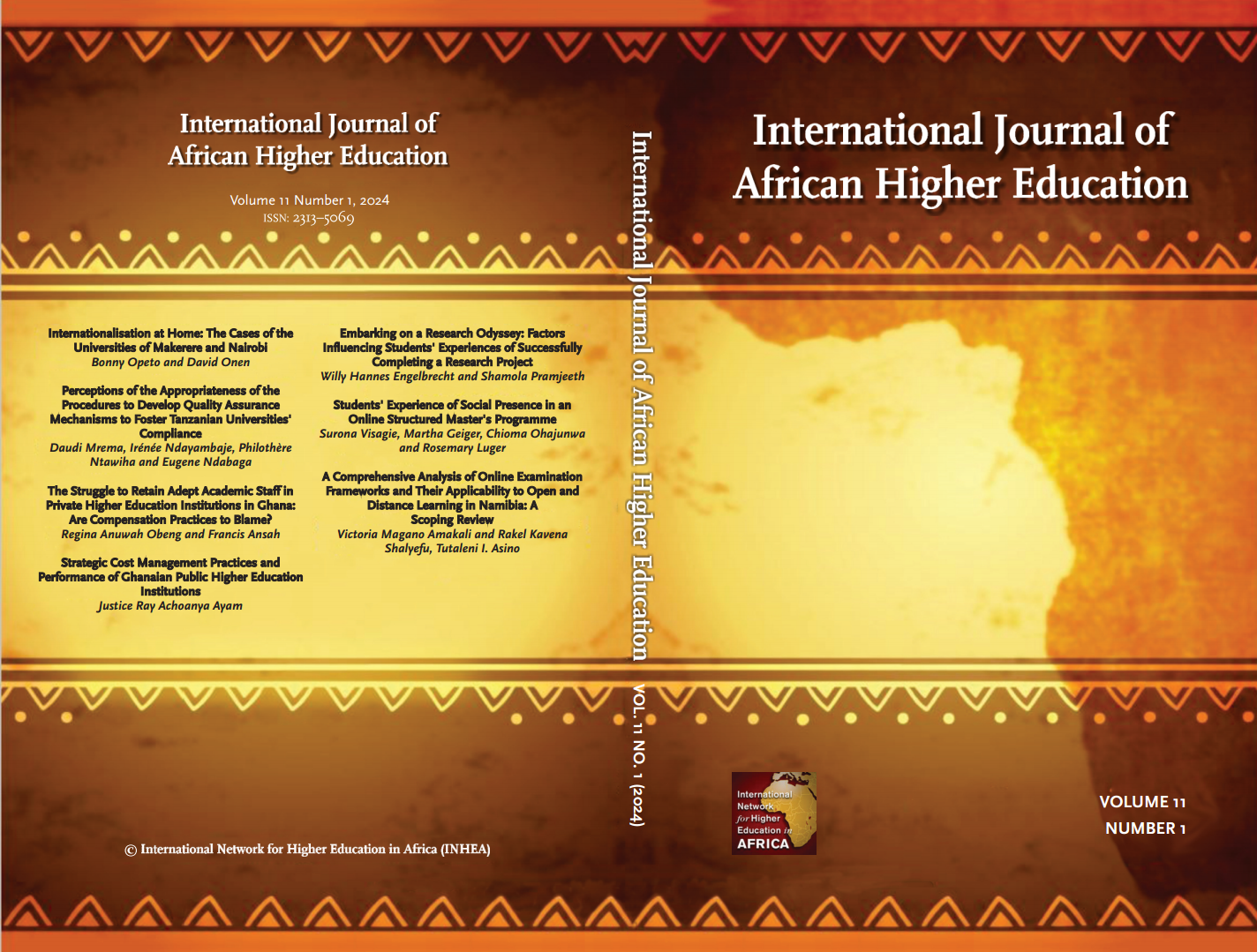The Struggle to Retain Adept Academic Staff in Private Higher Education Institutions in Ghana
Are Compensation Practices to Blame?
DOI:
https://doi.org/10.6017/ijahe.v11i1.17225Keywords:
staff retention, salary, fringe benefits, universities, human resources, motivationAbstract
The role of compensation in academic staff retention in higher education institutions is a long-standing debate. This study examined the direct effect of compensation on academics’ intention to remain at or leave private higher education institutions in Ghana. A correlational approach (survey questionnaire, Partial Least Square Structural Equation modelling) was used to assess the relationship between compensation and retention of 169 full-time academic staff randomly selected across five of these institutions. The study found that, although salary had a significant and positive relationship with academic staff retention (path coefficient = 0.229, t statistic = 2.003, p = 0.046), fringe benefits had a more significant and positive relationship (path coefficient = 0.597, t statistics = 5.484, p = 0.000). Collectively, salary and fringe benefits explained 60% of the variance in academic staff retention. These findings suggest that, because salaries are relatively low in Ghanaian private higher education institutions, fringe benefits have become pivotal in academic staff decision-making in relation to remaining or resigning.
Downloads
Published
How to Cite
Issue
Section
License
Copyright (c) 2024 Regina Anuwah Obeng, Francis Ansah

This work is licensed under a Creative Commons Attribution-NonCommercial-NoDerivatives 4.0 International License.

